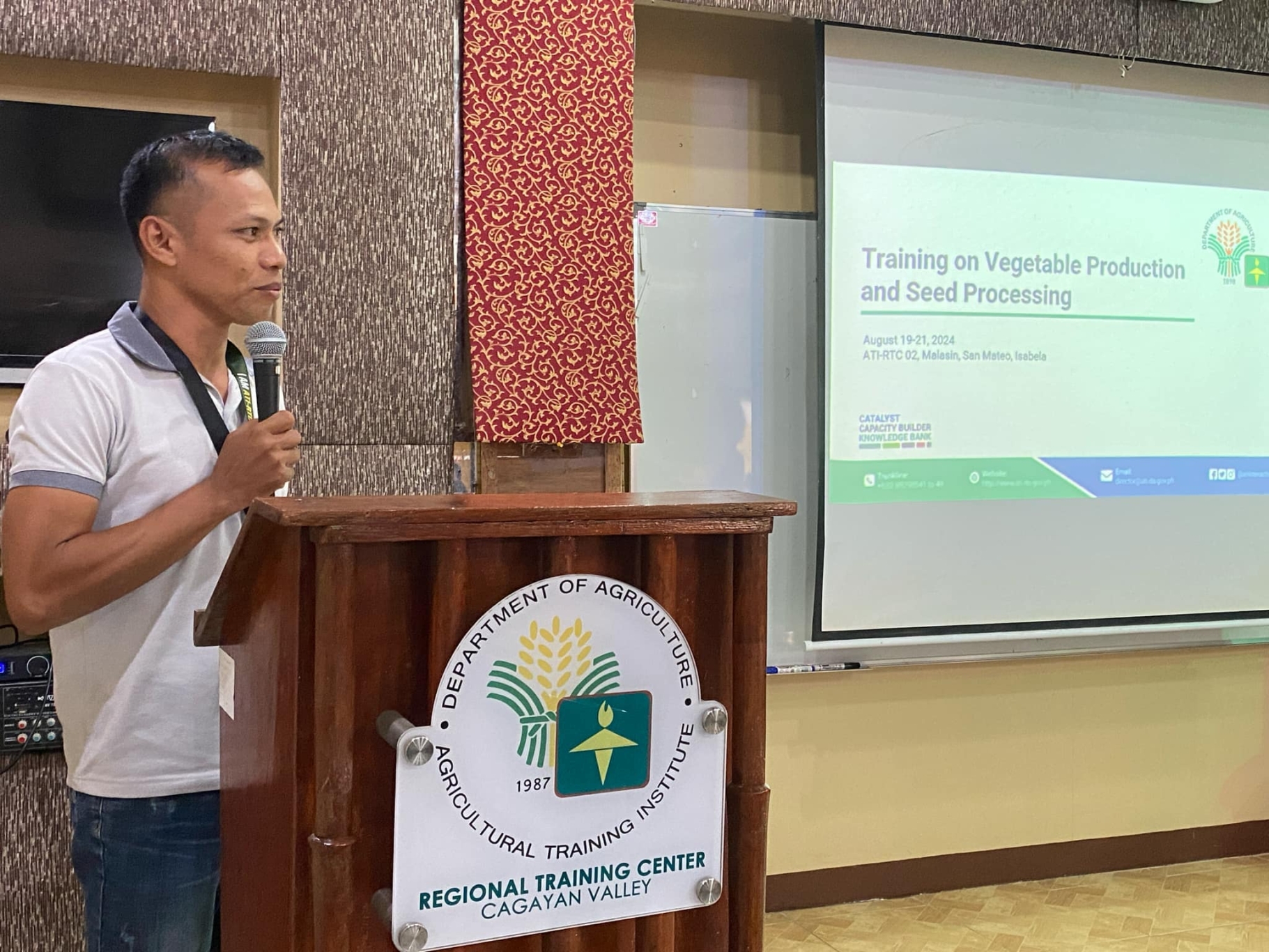The Agricultural Training Institute - Regional Training Center 02 (ATI-RTC 02) capacitate the 20 Agricultural Extension Workers (AEWs) and 14 National Urban and Peri-Urban Agriculture Program (NUPAP) beneficiaries on the Training on Vegetable Production and Seed Processing at the ATI-RTC 02, Malasin, San Mateo, Isabela, on August 19-21, 2024.
The participants are the beneficiaries of different NUPAP projects from different cities and municipalities of the region. Participants engrossed in discussions, sharing, lectures, and had the chance to visit the facilities of the Bureau of Plant and Industry - National Seed Quality Control Services (NSQCS), San Mateo, Isabela where they had their Seed Testing Practicum specifically on moisture content determination, physical purity test, and germination test.
On the closing ceremony, Dr. Claris Marayag-Alaska, OIC-Center Director, represented by the Chief of the Information Services Section (ISS), Mr. Vladimir B. Caliguiran, reminded the participants about the importance of sharing the knowledge and information gained during the training. “With all the knowledge that you gained here in our training, it is up to us how to grow and how we disseminate the seed of knowledge to other,” he said.
Police Staff Sergeant (PSSg) Sonny Agonoy Medina, of the Isabela Provincial Mobile Force Company (IPMFC), Alinam, Cauayan City, said that this was the best training he had ever attended. "It's the best training I've ever attended, too…through the lectures and discussions. I was able to figure out yesterday when I got home whether or not the vegetable we purchased from the market had insecticide applied to it,” PSSg Medina said.

On the other hand, the training aimed to capacitate the NUPAP beneficiaries to save and store vegetables seeds for their next cropping cycle. Through this, they can continuous producing healthy vegetables for their family and community.





